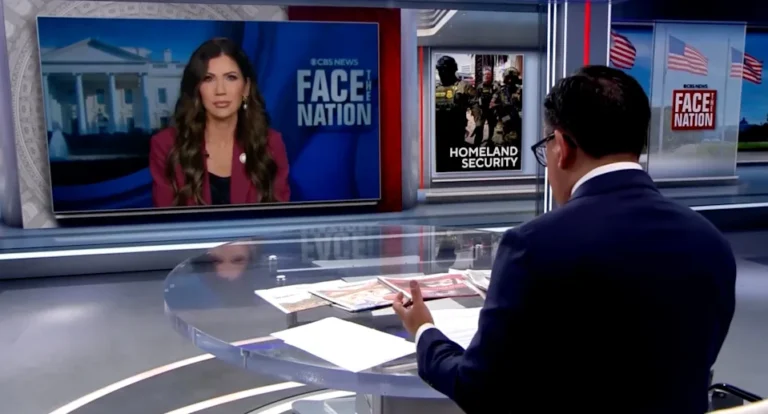CBS News Revamps “Face the Nation” Policies Amid Bias Allegations
In a significant shift, CBS News has announced it will no longer edit pre-recorded interviews for its flagship program, Face the Nation with Margaret Brennan. This decision follows accusations of bias against the network, particularly from those aligned with the Republican party, including a recent complaint from Homeland Security Secretary Kristi Noem.
Key Change: No More Editing of Pre-Recorded Interviews
The Shift in Policy
- Broadcasting Full Interviews: CBS will now air interviews live or use live-to-tape formats, ensuring no edits are made.
- Transparency Initiative: Responding to audience feedback, CBS aims to enhance transparency by posting full transcripts and unedited videos online.
In a public statement, the network declared:
"This extra measure means the television audience will see the full, unedited interview on CBS."
Background of the Allegations
Face the Nation has faced scrutiny for allegedly editing interviews in a manner perceived to misrepresent Republican figures. Recent incidents include:
-
Kristi Noem’s Interview: Key remarks from Noem were cut from the broadcast, which involved sharp critiques of Kilmar Abrego Garcia, an illicit migrant. CBS removed comments where she labeled him a "known human smuggler" and detailed his criminal history, which included violence and child exploitation.
- Prior Examples: Similar editing accusations surfaced when House Speaker Mike Johnson’s comments about President Biden’s response to Hurricane Helene were also edited out in a past interview.
New Ownership and Pressures
Skydance Media’s Role
With CBS now under Skydance Media’s ownership, questions loom regarding the future of the network. Executives at Skydance have made commitments to unbiased reporting, stating their intention to make CBS News more appealing to a broad political audience. Skydance’s CEO, David Ellison, has been vocal about transforming CBS News into an outlet that can be trusted by viewers across the political spectrum.
Ongoing Investigations
Amid these policy changes, CBS will also be hiring an ombudsman to address allegations of bias—though this position has yet to be filled. Previous promises made to President Trump in a lawsuit against CBS indicate a careful approach to managing public perception and internal bias.
Industry Reactions and Speculations
Impact on Broadcasting Format
- Altered Interview Dynamics: This policy shift challenges traditional methods of gathering news, requiring CBS producers to adapt to live formats, complicating their established routines of pre-taping interviews.
- Media Watch: Industry analysts are closely monitoring how this change will unfold, particularly in terms of the program’s engagements with both political parties.
Calls for Accountability
Critics have raised concerns regarding the potential outcome of ongoing bias allegations. Discussions have surfaced around whether CBS will take further action against high-profile figures like Margaret Brennan, Scott Pelley, and Gayle King. These individuals have faced scrutiny for perceived liberal biases, impacting their credibility and the show’s overall integrity.
Public and Viewer Sentiment
Mixed Reactions
- Support for Transparency: Many viewers have welcomed CBS’s decision to provide unedited interviews, seeing this as a commitment to accountability in journalism.
- Skepticism Remains: However, some remain doubtful that a single policy change can remedy deep-seated biases that have been alleged against the network for years.
Conclusion
The overhaul of CBS News’s Face the Nation marks a pivotal moment as the network attempts to reassess its editorial practices amid allegations of bias. As CBS works to regain viewer trust, the ramifications of these changes will be closely observed in the landscape of American journalism. A commitment to fair and unbiased reporting may very well define the future success of CBS in an increasingly polarized media environment.
For further information about CBS’s new broadcasting policies and industry reactions, you can read CBS News or explore articles on media bias from The New York Times.


